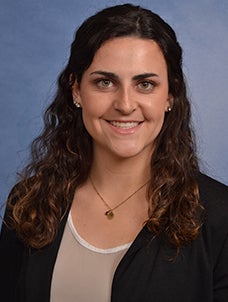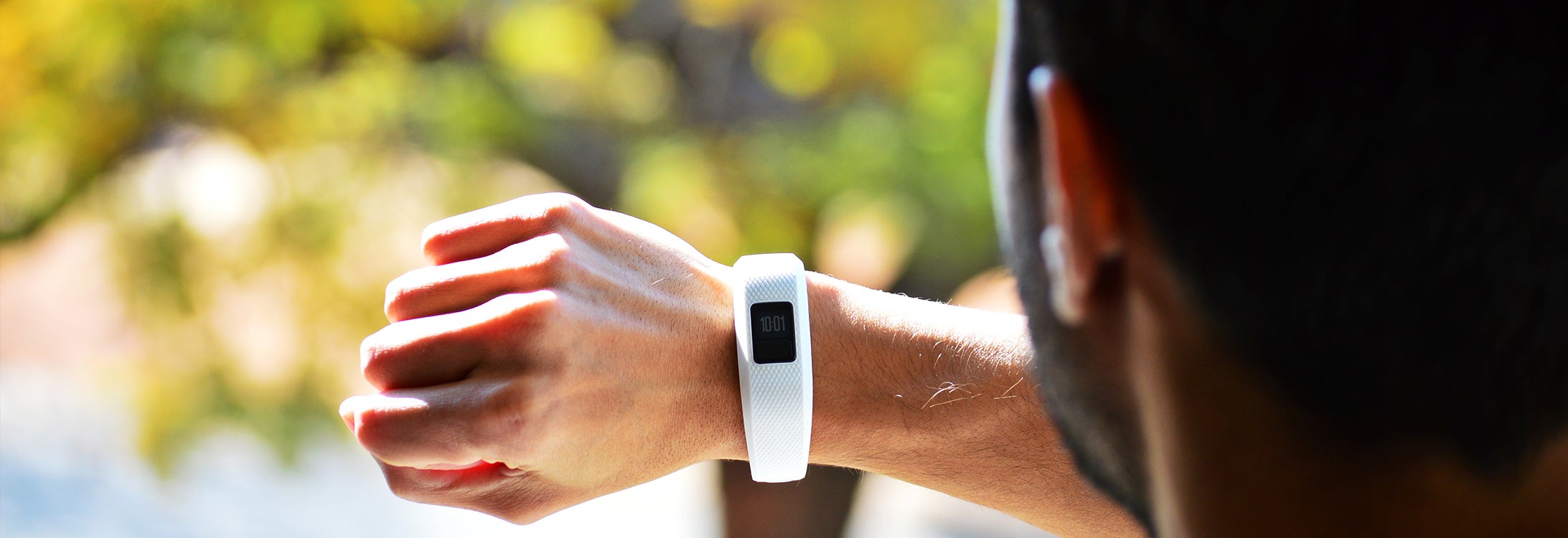Student Profile: Sarah Kautz

Undergraduate researcher Sarah Kautz is helping diabetics find treatment through exercise.
Mentor: Bhibha Das
Department: Kinesiology
Project Title: “LAST: Leisure activity step tracking study”
My project is a type 2 diabetes intervention program aimed at increasing overall leisure time physical activity levels using Fitbits. This is done through a 12-week program which involves six weeks of group meetings where weekly step goals are set and topics important to behavior change are discussed. The second six weeks no longer include group meetings as a way to see if participants keep up their increased leisure time physical activity levels on their own.
How did you get involved in undergraduate research?
Dr. Bhibha Das presented her research interests during my Introduction of Health Fitness Specialist Profession class my freshmen year. After her presentation, I was captivated by how much her interests in exercise medicine, preventative care and public health overlapped with mine. I quickly emailed her hoping to set up a meeting just to hear more about her research. To my surprise she did she so much more than just tell me about her research, she offered to mentor me through the development of own research interests. Since then Dr. Das has been an outstanding mentor and has gone above and beyond to support, challenge and develop me in becoming not only an undergraduate researcher, but a future health care professional.
Why did you choose your research topic?
I choose my research topic around two passions of mine which include physical activity and preventative medicine. As a public health major, I have learned about many public health issues that plague our society – including a high rate of type 2 diabetes. However, we know that type 2 diabetes involves three cornerstones of treatment, one being physical activity. The idea of utilizing something other than a prescription medication to treat a disease inspired me and is what led me to choose an intervention program centered around physical activity as a form of treatment for type 2 diabetes.
What’s been your favorite part of conducting undergraduate research?
My favorite part about conducting undergraduate research has been how it has allowed me to develop a strong passion for my field and allowed me to help people who live right here in Greenville. I have made a true impact on people’s lives for the better and, without this research project, the participants in my study may not have ever taken the steps to become more physically active. Being able to develop and implement a project that truly stemmed from my own ideas has made me feel a strong sense of accomplishment and passion that I have never felt in any other aspect of my academic career.
What challenges have you faced while conducting undergraduate research?
With great accomplishment also comes great challenges. One challenge I faced was getting funding, including an URCA award, which I had previously applied for and not been chosen multiple times. Another challenge I faced was recruiting and retaining research participants. I think this was difficult because I lacked a good incentive, due to the lack of funding. Also, just because the management of type 2 diabetes through exercise is something I am passionate about doesn’t mean that everyone with type 2 diabetes feels that way. I struggled with this realization at the start of my intervention program when I had a low participant count, but in hindsight I see it as a benefit and part of what made my program so successful.
What’s your ultimate goal or accomplishment that you hope your research will help you achieve?
The ultimate goal that I hope my research will help to achieve is improved management and reduced rates of type 2 diabetes nationwide. Type 2 diabetes is one of the leading public health issues and with so much research being done on how to prevent, manage and treat the disease it seems that we should be seeing these rates fall instead of rise. Improving physical activity level by simply increasing overall steps per day creates a feasible behavior change that can lead to prevention or treatment of type 2 diabetes for anyone.
How do you feel that participating in undergraduate research has helped prepare you for life after college?
I think that my research project is applicable to my future career as a physician assistant (PA) in more ways then I realize. But, as of now, this project has allowed me to develop and implement an intervention program that utilizes exercise as medicine for one of the leading causes of death across the country. Development of this program took critical thinking, creativity, initiative and innovation – all skills that will help me in getting into PA school and my future career. Implementation allowed me to make a positive change in people’s lives right here in Greenville, integrate participant education and manage a team, all things I hope to continue to do as I move closer to my career.
Do you have any advice for other students interested in conducting undergraduate research?
My biggest piece of advice is knowing that no idea is too far-fetched. It is so common for undergraduate researchers to latch on to professors or peers research ideas, which is a great opportunity, but for me personally I am so passionate about my research because it truly stemmed from my own idea. If you have an idea you are passionate about, curious in knowing more, or have an idea that can contribute to your field in a new way, find a mentor who has similar interests and ask for their support in cultivating your idea.
